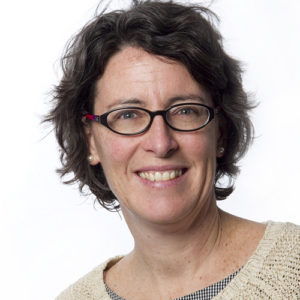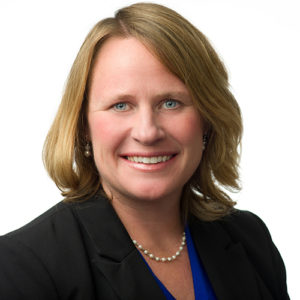Fellowships
Applicant due date: February 19, 2025 (5 pm Central)
The University of Wisconsin Sea Grant College Program is accepting applications from graduate students statewide for the National Sea Grant College Program’s John A. Knauss Marine (and Great Lakes) Policy Fellowship Program.
The program, established in 1979, provides a unique educational experience to applicants who have an interest in ocean, coastal and Great Lakes resources and in the national policy decisions affecting those resources. The program matches highly qualified graduate students with “hosts” in the legislative and executive branch of government located in the Washington, D.C. area, for a one year paid internship.
Placement opportunities are numerous and very diverse and have typically included offices within Congress, the Executive Office of the President, the National Oceanic and Atmospheric Administration, the National Aeronautics and Space Administration, the U.S. Fish and Wildlife Service, the Environmental Protection Agency, the Federal Emergency Management Agency, the U.S. Navy, and the U.S. Departments of State, Treasury, Transportation, and Energy, in addition to others.
Applicants from a variety of backgrounds including natural and social sciences, law, engineering, and communications can be competitive for this fellowship.
Complete information on the fellowship – including eligibility (must be enrolled towards a degree in a graduate program at any point between the onset of the 2024 Fall Term and February 19, 2025), application instructions, evaluation criteria, examples of past fellow placements, and more – are available here. Fellowships begin on February 1, 2026.
Applications are due to the Wisconsin Sea Grant program by February 19, 2025 (5 pm Central), and should be submitted via email to jennifer.hauxwell@aqua.wisc.edu. Applicants are strongly encouraged to reach out to Wisconsin Sea Grant by emailing jennifer.hauxwell@aqua.wisc.edu as soon as possible to notify the program that they intend to apply, receive application support, and to set up a meeting with our Wisconsin Sea Grant director.
Please share this opportunity with colleagues, friends and potential applicants!
Learn more about becoming a Knauss Fellow
Get started on your application with:
Applicant due date: Thursday, January 23, 2025
This NMFS-Sea Grant Joint Fellowship program is aimed at PhD candidates who are United States citizens interested in population and ecosystem dynamics and marine resource economics. For students interested in marine ecosystem and population dynamics:
- The emphasis will be on the research and development of quantitative methods for assessing the status of marine ecosystems; managed fish, invertebrates, and other targeted species; and marine mammals, seabirds, and other protected species.
Similarly for students interested in marine resource economics topics:
- The fellowship supports students who are interested in careers related to the development and implementation of quantitative methods for assessing the economics of the conservation and management of living marine resources.
You can find more information on grants.gov, HERE, and the updated student guide can be found on our webpage HERE.
Interested students should contact jennifer.hauxwell@aqua.wisc.edu for more information about the application process for Wisconsin applicants.
Coastal Management Fellowship Program. This program’s mission is to provide on-the-job education and training opportunities in coastal resource management and policy for postgraduate students and to provide project assistance to state coastal zone management agencies and other key NOAA partners.
Note – The Coastal Management and Digital Coast Fellowship Programs are not accepting new applications. Additional fellowship opportunities are available, including the Margaret A. Davidson Fellowship and the NOAA Coastal Resilience Fellowship. If you have questions, please contact ocm.fellowships@noaa.gov.
Applicant due date: February 2, 2025
Wisconsin Sea Grant and the Wisconsin Coastal Management Program fund this science-policy fellowship for candidates interested in tackling science and policy challenges related to increasing the resilience of coastal communities across the Great Lakes region.
The fellowship is named in honor of longtime Sea Grant coastal engineering expert Phil Keillor, who passed away in 2009, to celebrate his legacy in building resilience in Wisconsin communities. This fellowship provides a unique educational and career opportunity for a recent graduate who is interested both in aquatic resources and in the policy decisions affecting those resources in Wisconsin. It places a recent master’s or doctoral graduate within a state agency full-time for one year, with the Fellow bringing technical skills to benefit water issues and challenges and receiving valuable real-world science-policy experience from the resource professionals who serve as mentors.
This mutually beneficial partnership helps advance science to support policy decisions, and it provides valuable training opportunities for new professionals entering the work force.
Applicant due date: February 2, 2025
The Wisconsin Sea Grant College Program and the Wisconsin Coastal Management Program seek postdoctoral and post-master’s candidates interested in tackling science and policy challenges related to increasing coastal community resilience across the Great Lakes region. Together, these programs will fund a state fellowship position, named in honor of a longtime Sea Grant coastal engineering expert Phil Keillor, to celebrate his legacy in building resilience in Wisconsin communities. The Fellow will work closely with the Wisconsin Coastal Management Program, Sea Grant’s coastal engineer, local government representatives, and researchers from a variety of fields to tackle the important challenge of connecting science related to coastal hazards – including flooding, erosion, and storms – with communities that could benefit from the information.
These mutually beneficial partnerships advance science to support policy decisions and provide valuable training opportunities for new professionals entering the work force.
Assistantships
Researchers who are funded through a competitive grants process often support graduate students as part of their projects. Students do not apply directly for these awards. To find Wisconsin researchers who are current funded by Wisconsin Sea Grant, visit our most recent Directory of Projects and People in our publications store.
More than 700 graduate students have received this type of support.
Scholarships
Look for details on the next opportunity soon.
Established in 1995, the Carl J. Weston Memorial Scholarship fund provides support for deserving undergraduate students working on Wisconsin Sea Grant-supported projects. Funding source: Dr. and Mrs. Carl B. Weston.
Undergraduate students who are conducting research, under the guidance of a principal investigator (PI) on a Sea Grant-supported project, are eligible to apply to this scholarship. Scholarship recipients will be awarded $750. The scholarship application must include:
• A copy of the student’s academic record (transcripts)
• A personal statement from the student explaining their career goals and how the research that they are conducting contributes to their personal and academic growth, and future career goals
• A letter of support from the PI
The section will be updated when the Weston Scholarship is offered again. View a list of past scholarship winners.
Periodically, Wisconsin Sea Grant offers funds to support conference travel for graduate students who are affiliated with Sea Grant projects. This section will be updated when this type of funding is again available.
Tips on applying for fellowships
Our three-part podcast series offers useful advice on applying for fellowships. Save time and worry by listening before you apply for a fellowship. Listen to the “On Fellowship” podcasts.
Curious to learn about the fellowship experiences of past fellows? Wisconsin Sea Grant hosts webinar series especially for graduate students in water-related fields. These webinars are geared towards helping graduate students apply for and learn about fellowships, learn to become more impactful aquatic researchers, and to optimize their graduate experiences to prepare them for the next steps along their career paths. Read more for details and links to recordings!




